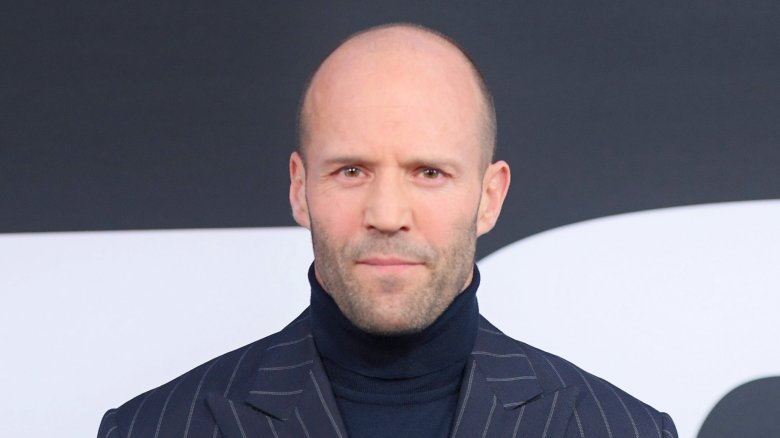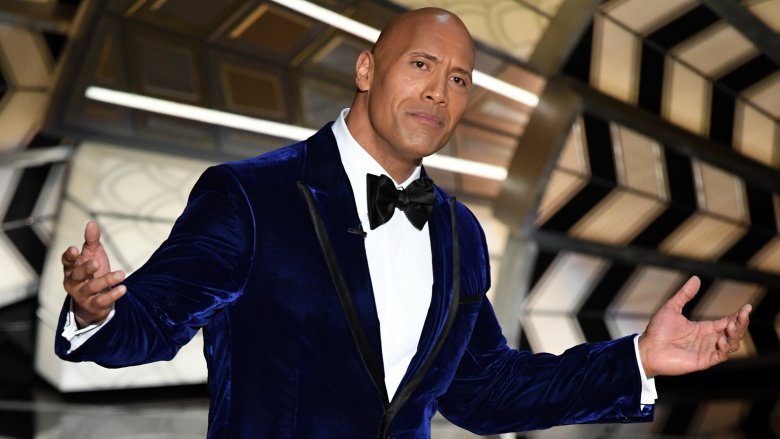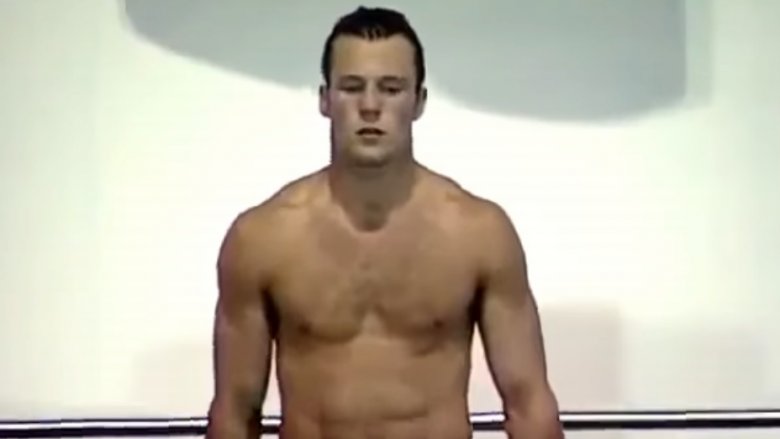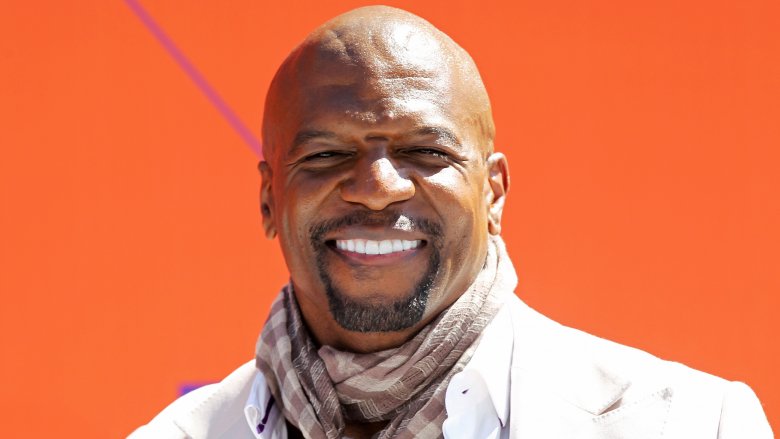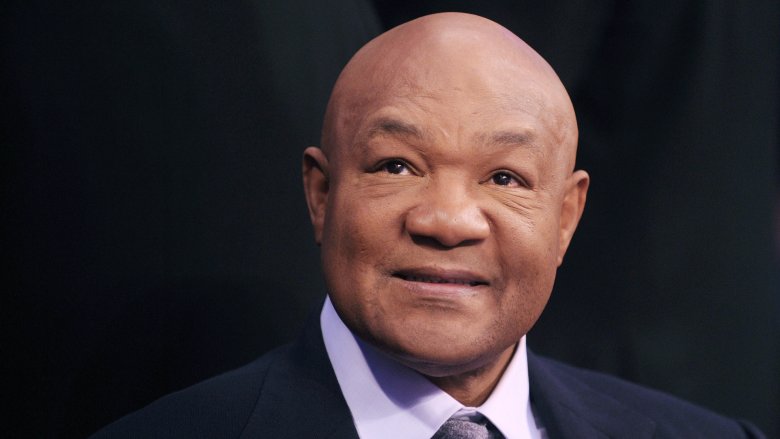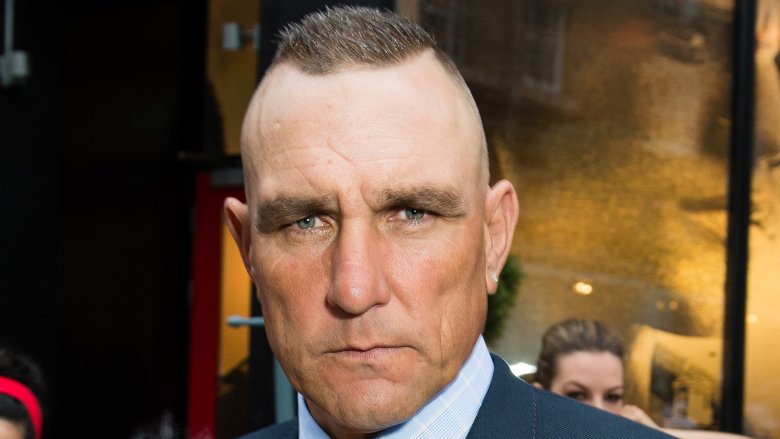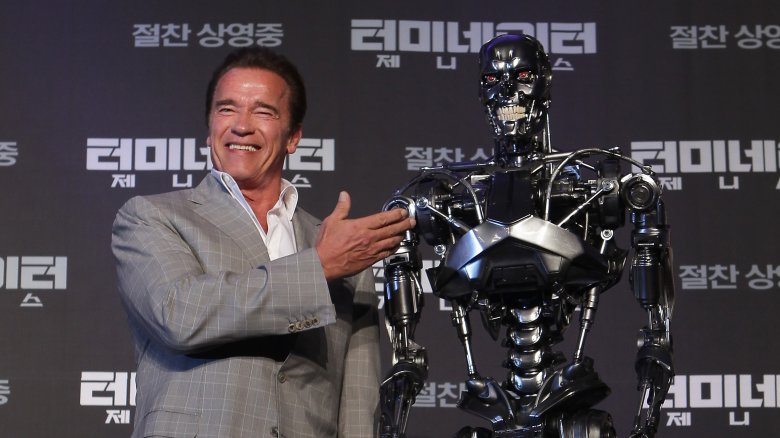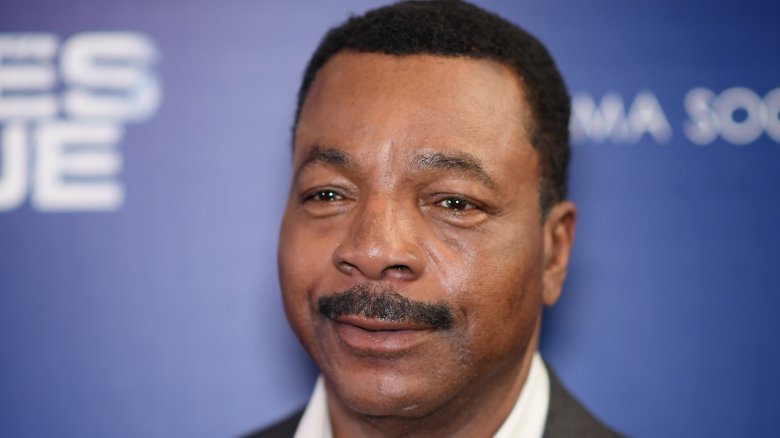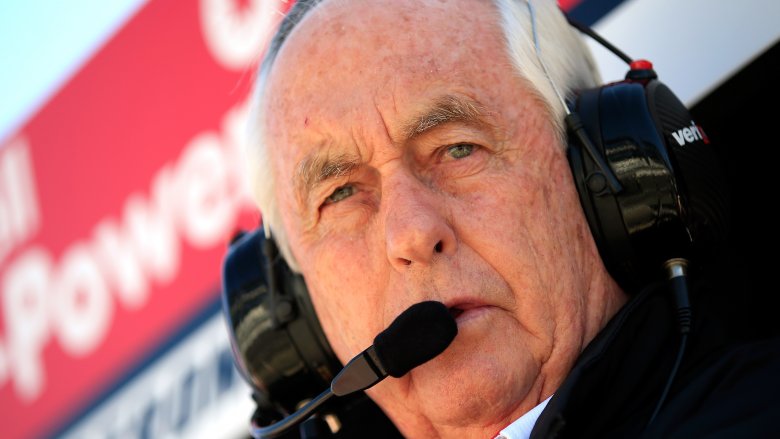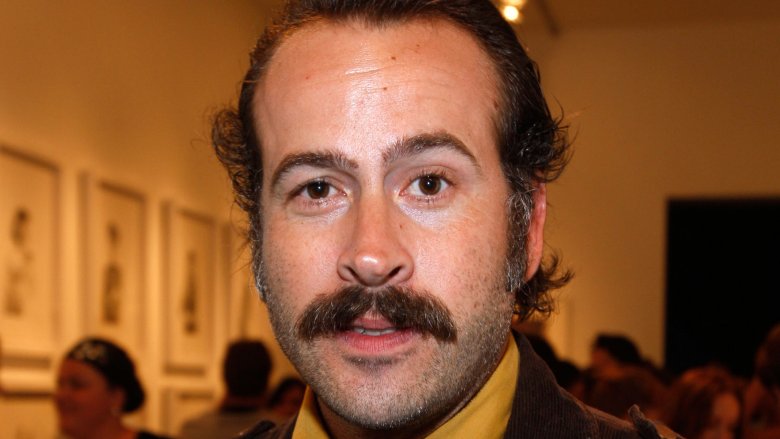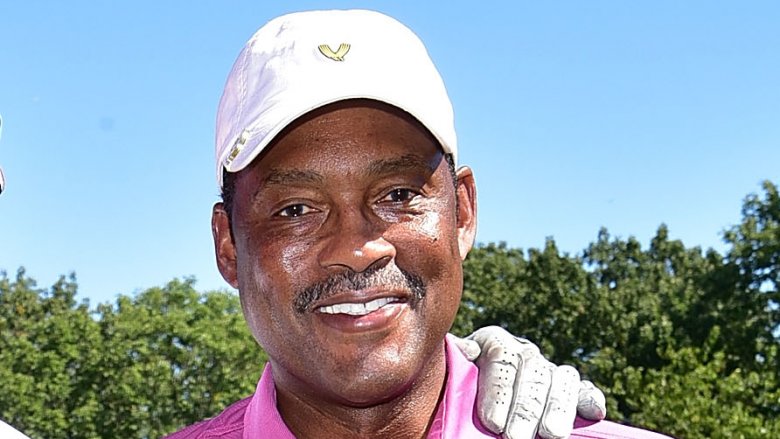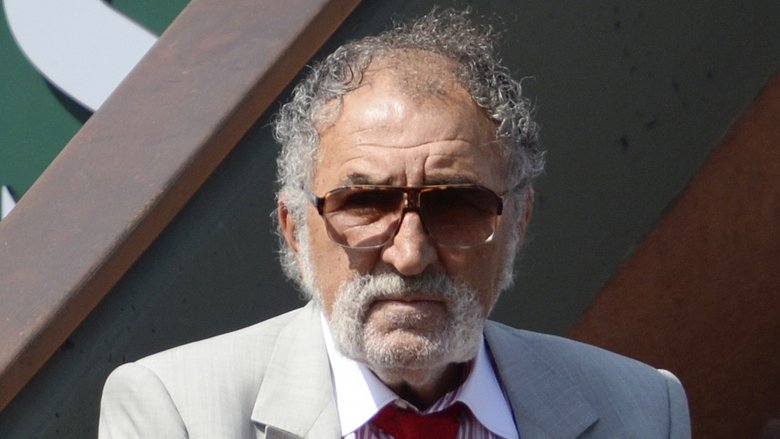Pro Athletes Who Were More Successful After They Retired
When someone becomes a professional athlete, it feels like they scored a major win in life or at least lost at obesity. It must take a mind-boggling amount of training and talent to be so good at dribbling a ball or running into people at full speed that the public will pay to watch you do it. Heck, we'd probably have to pay you to watch us play sports, and we'd just end up trying (and failing) to slam-dunk a golf ball.
You'd think athletes would be content with their endless abs and the knowledge that most people will never be as skilled as they are at their sport. But some of them insist on achieving even greater success in their post-sports careers. So while some of us are just struggling to not suck at the one thing we do, there are dynamos like the people below who were not only topnotch athletes, but arguably more impressive at other things.
Dwayne Johnson didn't hit rock bottom after wrestling
Dwayne Johnson looks like the lovechild of a Greek god and an extremely charismatic eyebrow. And while he did play Hercules, he's just a super talented human. An exceptional football player in high school and college, Johnson aspired to enter the NFL and might have if injury hadn't derailed him. Instead, he played Canadian football for a spell before becoming a wrestler.
Johnson debuted in the WWE as Rocky Maivia, a character best described as a toothy smile with limbs. But he soon shined as "The Rock," an electrifying loudmouth who constantly asked if people could smell what he was cooking, even though he always prepared the same meal: the candied behinds of his opponents. The Rock would win 17 championships during a Hall-of-Fame wrestling career defined by iconic rivalries and comedic verbal smack-downs.
In the early 2000s Johnson exited the wrestling world (though he returned periodically for cameos and dream matches) to become the most electrifying man in Hollywood. After starring in a string of high-paying films, including Central Intelligence, Jumanji, and Skyscraper, Johnson's wallet bulged more than his biceps. In 2018 Forbes dubbed him the highest-paid Hollywood actor, attributing the bulk of his $124 million in earnings to lucrative movie contracts that paid big bucks upfront and paid extra bucks for plugging his own films on Twitter. It smells like The Rock is cookin' greenbacks.
Jason Statham was a competitive diver before plunging into movies
Whether he's feeding bad guys brass-knuckle sandwiches or serving up foot hoagies, Jason Statham is a one-man buffet of cinematic violence. The action star has 49 acting credits and counting, including modern cult classics like Snatch, high-octane blockbusters like the Fast and Furious sequels, and the bizarrely hilarious Crank. But before he flooded the silver screen with punches and gruff charm, he was a competitive diver.
According to the Telegraph, Statham spent 12 years on Britain's National Diving Squad and even competed in the 1992 World Championships, where he placed 12th. While that's a laudable accomplishment, the future actor didn't make as big of a splash as he wanted. In a 2016 interview Statham admitted, "It's a bit of a sore point I never got to the Olympics." Luckily, his movies have grossed over a billion dollars, so he's probably earned enough money to buy an Olympic-sized swimming pool, dive in it, and award himself a gold medal.
Terry Crews bounced back from post-NFL hardships
Terry Crews might be the only man on Earth who could make a deodorant that's basically named "expired herbs" sound cool. In addition to smelling like Old Spice, Crews has more muscles than a seafood restaurant and an uncanny knack playing aggressively absurd characters in shows and movies. He most famously portrayed the comically moronic President Dwayne Elizondo Mountain Dew Herbert Camacho in Idiocracy and has been a riot in the series Brooklyn Nine-Nine. But life hasn't always been chuckles and pec-flexing for Crews.
As Business Insider described, during the 1990s Crews had a forgettable NFL career. A linebacker for four different teams in five years, he played 32 games and had a stat sheet full of zeroes when he retired in 1996. Things got worse from there. "I moved to Los Angeles thinking that because I was a football player, I was going to get a lot of big opportunities," Crews recalled. Instead, he found a lot of rejection and a low-paying job sweeping floors at a factory. Undeterred, he used his flex appeal and personality to score several TV roles before landing his breakout role as Damon the ex-con in Friday After Next. While the movie tanked at the box office, Crews gained enough exposure to launch his now-thriving career.
George Foreman stopped rumbling in the jungle and started grilling in commercials
In his heyday "Big" George Foreman hit like a freight train. According to Sports Illustrated, he was "fueled by an internal anger" and had "one of the most powerful right hands in boxing history." After punching his way to Olympic gold in 1968 he racked up 40 straight wins, 37 of them by knockout. In 1973 he won the heavyweight championship by dominating Joe Frazier, the first boxer to defeat Muhammad Ali. Ali would hand Foreman his first professional loss at the 1974 Rumble in the Jungle, employing the rope-a-dope (leaning against the ropes and letting Foreman tire himself out) to win.
Though his loss to Ali haunted him, Foreman kept on punching and at 45 years old he became the oldest heavyweight boxing champion. That's more than enough accomplishments for a single lifetime, but Foreman continued winning outside the ring. In 1994, the same year he made boxing history, he began endorsing electric grills. At first he wasn't sold on the idea, but as CNBC described that changed in 1997 when Foreman received his first $1 million check. At that point, he realized fighting was "getting in the way of [his] business life" and decided to hang up his gloves. He subsequently made out like a bandit, earning as much as $200 million between 1998 and 2010.
Vinnie Jones went from soccer brute to movie brute
Vinnie Jones sounds like the name of a gangster who rips out people's teeth for fun, which pretty much describes the types of characters Jones tends to portray in movies. But the intimidating Brit wasn't a real-life gangster as far as we know. He was, however, a ruthless soccer player. Per IMDB, Jones played for Wimbledon, Wales, and several other teams, and he was unrepentantly violent.
In matches Jones committed vicious tackles and intentionally crashed into opponents. According to Bleacher Report, one of his tackles may have ended a player's career. However, his most notorious offense was squeezing a rival's non-soccer balls mid-game. The Telegraph noted that in addition to being brutal, Jones was successful, sharing an FA Cup with his Wimbledon teammates in 1988.
Given his hard-earned reputation as one of soccer's "hard men," it makes perfect sense that he's been consistently cast as stone-cold rump-kickers like Bullet-Tooth Tony in Snatch or The Sphinx in Gone in 60 Seconds. Jones is basically famous for playing deadlier (yet somehow less scary) versions of himself onscreen.
Arnold Schwarzenegger conquered bodybuilding, movies and California
In all likelihood, Arnold Schwarzenegger is secretly three people rolled into one. Seriously, how else do you explain the fact that he's had three distinctly different careers and has seen success in all of them? Plus, have you seen images of him from his bodybuilding days? His muscles looked like they were pregnant with other muscles. And while some people work out their whole lives to form half a bicep, per Arnie's official website, by age 20 he had already out-flexed every bodybuilder in the cosmos, "becoming the youngest person ever to win the Mr. Universe title."
Schwarzenegger earned five Mr. Universe titles and seven Mr. Olympia titles, and he was just getting started. Then he became one of the biggest action movie stars of all time. Along the way there were some epic stinkers, like the hilariously cheesy Hercules in New York wherein he fights a man wearing a bear costume in the middle of Central Park. But he would also bring us classics like The Terminator, Kindergarten Cop, and Total Recall, among others. Altogether his films have grossed over $3 billion. And Schwarzenegger still wasn't done. In 2003 he became the governor of California, serving until 2011.
Carl Weathers had a very short-lived NFL career
Carl Weathers is probably best remembered for his iconic performances as Apollo Creed, the fictional boxing legend who beat Rocky Balboa, then lost to him, then lovingly hugged him in slow motion while helping him beat Mr. T., and then got Ivan Drago'd to death, inspiring Rocky to win the Cold War. But even if you aren't a Rocky fan, you might know Weathers from other memorable roles such as Chubbs the one-handed golf pro who mentored Happy Gilmore, or Dillon, the guy who muscularly shook hands with Arnold Schwarzenegger (and also lost one of his hands) in Predator. Both of those characters also died.
You know what else died? Carl Weathers' NFL career. As CBS Sports reported, he was a linebacker for the Oakland Raiders between 1970 and 1971. Weathers participated in eight games before leaving to try his hand at acting. In a career that spans four decades, he's appeared in tons of shows and movies and worked as a director and producer.
Roger Penske felt the need for speed but needed money even more
Roger Penske clearly loves speed (the concept, not the drug). For decades he has either driven ridiculously fast cars or helped others drive ridiculously fast cars and has made loads of money as the head of Penske Automotive Group, a Fortune 500 company that deals in car retail, distribution, and rentals. As of 2018 his renowned racing team has won 17 Indy 500s. Ironically, it all started when Penske himself declined the chance to race in the Indy 500.
Per Sports Illustrated, Penske became a professional speed demon in 1961. His career got off to a good start with three back-to-back victories in national races. Sports Illustrated named him Sports Car Driver of the Year, and in the three years that followed he claimed eight more victories. In 1965 he found himself at a crossroads. He was offered the chance to try out for the Indy 500, but he had recently bought a car dealership with the help of a $75,000 loan from his dad. Drivers didn't get paid much back then, so choosing to race likely meant not repaying his father. So Penske said no to his only shot at racing in a competition his team would become famous for winning. It paid off handsomely in the end, as Penske expanded his dealership into a multibillion-dollar enterprise.
Jason Lee went from rail slides to railing out chipmunks
When you look at Jason Lee, you probably weep for the days when his name was Earl and he sported that fantabulous mustache. Or maybe you wonder how many times he paused to weep while filming those godawful Alvin and the Chipmunks movies. What you certainly don't do is picture him traveling the world to pull off sweet tricks on his skateboard. According to Biography, that's precisely what Lee did before he got into acting.
In a 2000 interview with IGN, Lee explained that he started skateboarding when he was 5. A month before his 19th birthday, he officially joined the ranks of the pros, completely immersing himself in the sport, even co-founding a company called Stereo Skateboards. After a while it felt like overkill, and Lee wanted more out of life than a tiny surfboard on wheels: "I didn't want to be the 36-year-old skateboarder who's still holding on while owning a company at the same time. I wanted to make my mark and travel and accomplish a few things here and there and then get out."
Luckily for Lee, along his travels he met a skateboarding enthusiast who was also an actor. Through that association he met his future manager Gay Ribisi. She got him a starring role in Mallrats, and his career began to take off.
Junior Bridgeman played for the Milwaukee Bucks before earning millions of bucks
In the NBA, a sixth man comes off the bench to do whatever's needed within a short amount of time. Because they're expected to do more with less, sixth men have to be versatile, efficient, and selfless. Basically, these athletes have to be like Junior Bridgeman.
As Sports Illustrated explained, Bridgeman spent 10 seasons as a Milwaukee Buck, and while he never received the acclaim of his legendary teammate, Kareem Abdul-Jabbar, he cemented his legacy as a "super sixth man." He also presided over the players' association and gained valuable experience negotiating player salaries and navigating the business world.
Bridgeman left the NBA in 1987 and used his b-ball money to purchase five Wendy's restaurants. This wasn't a minor expense. Bridgeman's highest NBA salary was $350,000, so he was either really hungry for greasy beef or really confident he could turn a profit. However, a mediocre first year convinced him he had to rely on more than artery-murdering food to boost profits. Bridgeman channeled his inner sixth man and started supporting his teammates (in this case, his employees). He helped some workers pay rent, bailed others out of jail, and gave pep talks like a coach. Productivity shot up and money poured in. In 2014 his net worth was estimated between $250 million and $400 million.
Ion Tiriac made a billion dollars before Michael Jordan
If the name Ion Tiriac doesn't ring any bells, you clearly weren't a fan of 1960s ice hockey and Romanian tennis players. And that's a shame because News Corp Australia made Tiriac seem like a real hoot. He regularly greeted people with headbutts and was described by the New York Times as "a wild reveler who rode motorcycles, chased models, gobbled caviar, and ate champagne glasses." A childhood table tennis champion, Tiriac also excelled at ice hockey and secured a spot on Romania's 1964 Olympic team. From there he shifted focus to tennis, establishing himself as the eighth best tennis player in the world by 1968 and winning two titles in 1969 and 1971.
In 1979 Tiriac said goodbye to thwacking pucks and balls and said hello to striking it rich. Despite his habit of headbutting people, he had all the brain cells he needed to make mountains of cash as a tennis coach and manager. Furthermore, he founded Romania's first post-communist bank and made millions investing in real estate and insurance companies. By 2007 Tiriac was worth an estimated $1 billion, meaning that contrary to some reports, Michael Jordan (who reached that milestone in 2010) wasn't the first billionaire athlete; apparently, it was a man who ate glass for fun.
